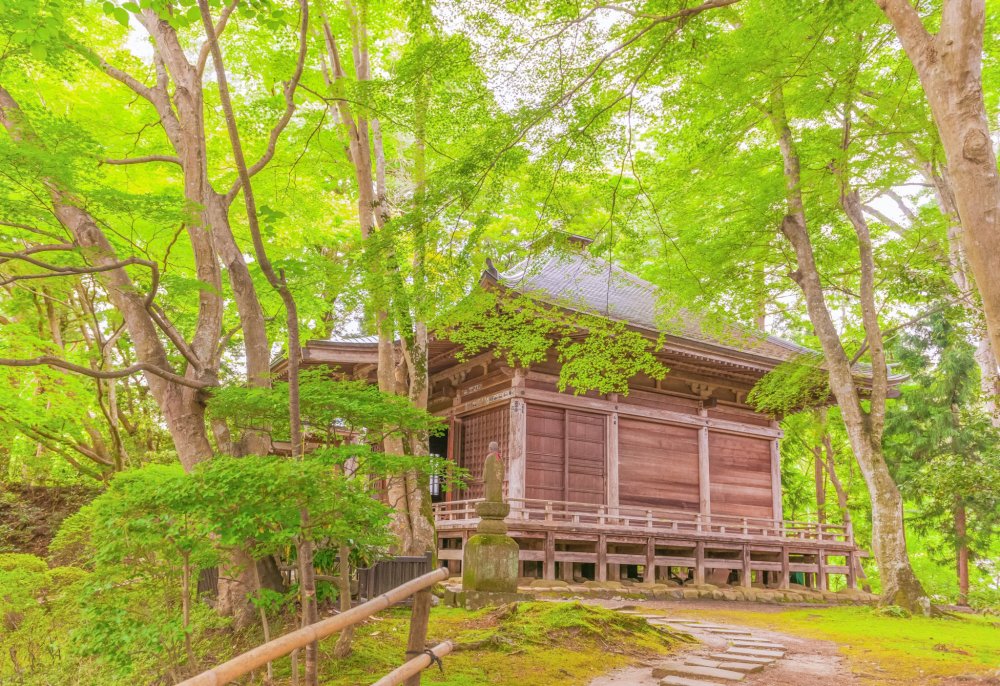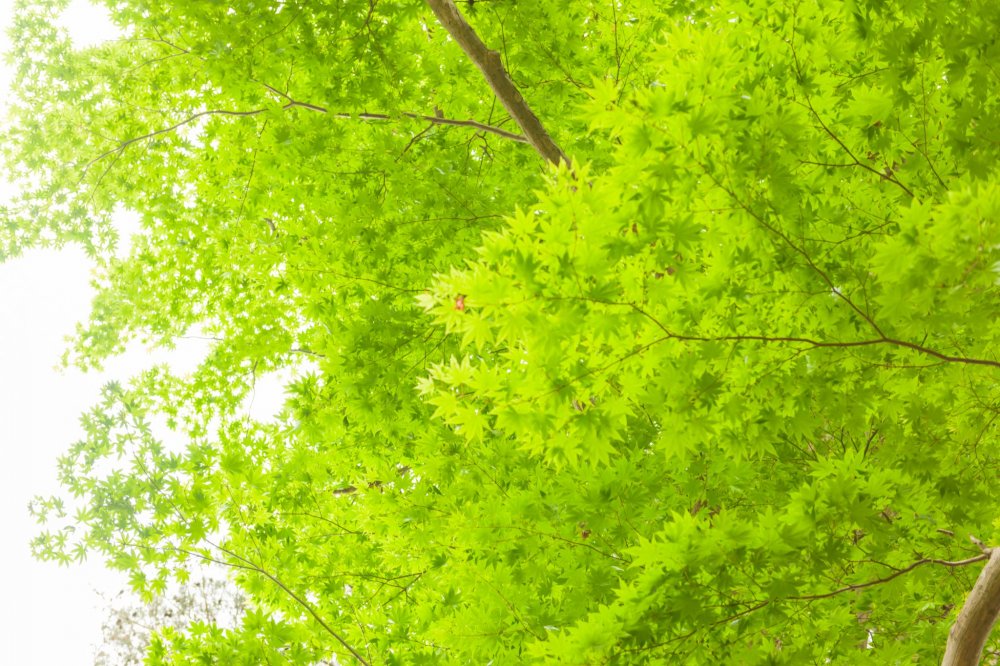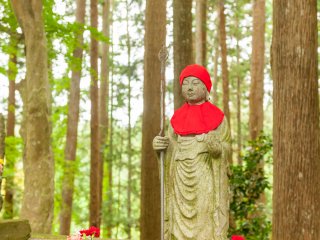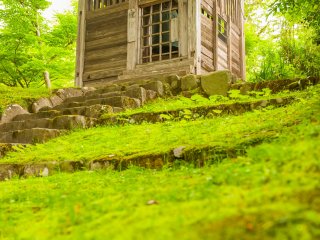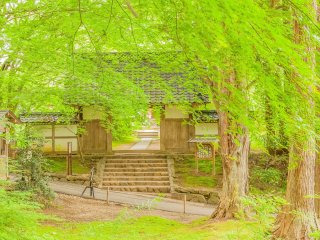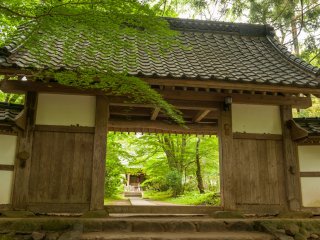“Summer grass / all that remains / of a warrior’s dream”
Chusonji temple was established by the Oshu Fujiwara clan in 850. After that, the Fujiwara family became powerful rulers of northern Japan until they were overthrown in 1189. Chusonji is a special place not only for its panoramic views of Hiraizumi city, but also as the most famous of the World Heritage sites in Hiraizumi.
It is said that the great haiku poet Matsuo Basho shed tears while visiting this place, so I thought there must be something special about this place. It was during his travels in the region that he wrote The Narrow Road to the Deep North, a seminal work of Japanese literature.
Luckily, I had a chance to visit Hiraizumi in June, at the same time of summer. The weather was great, so I could enjoy the view. Witnessing the appeal of Chuson-ji at first-hand was an amazing experience for me. Still retaining the vestiges of its former days, it appears to be the ideal place to collect your thoughts and relax.
In the quiet grounds, cool breezes blow through the verdant foliage, which glistens in the sunlight. The summer grass is not overgrown, but it spreads out as smoothly as a green carpet. What magnificent scenery, such that I have never seen before!
The architectural remains are still standing quietly, retaining the feeling of the old days. This place bears silent witness to the proof of the town’s rich past. Despite the passage of time, I felt like I understood Matsuo Basho's emotions as he traced the trail of Yoshitsune and the poet Saigyo.
Getting there
It's about a thirty-minute walk north from Hiraizumi station, on the JR Tohoku main line. If you're using a JR Pass, it's worth planning carefully; local trains on this line are infrequent, so you might end up with a long wait at Ichinoseki, the nearest shinkansen station.


